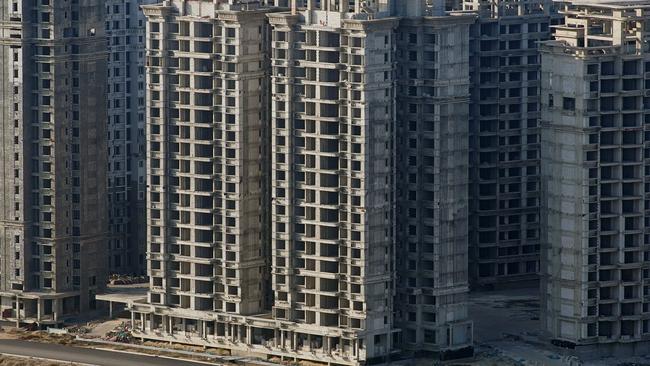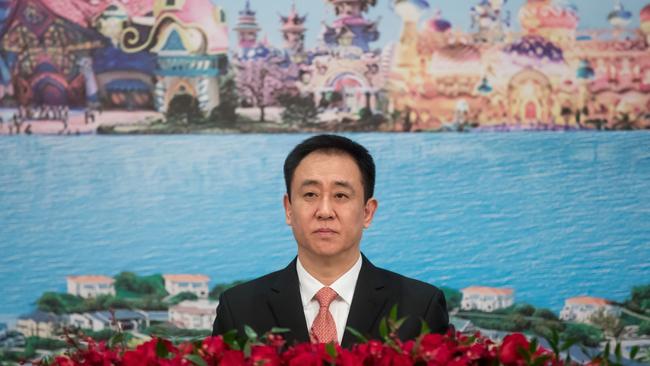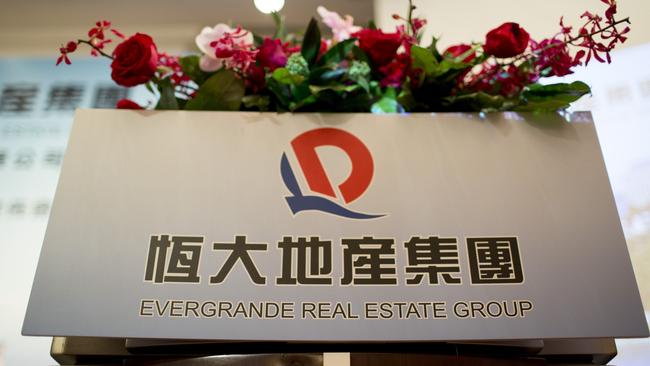Evergrande’s debt balloons as embattled property giant dealt $118 billion blow
The embattled property developer has had a rough two years that could be the final nail in its partially-built coffin.
Companies
Don't miss out on the headlines from Companies. Followed categories will be added to My News.
Embattled Chinese property juggernaut Evergrande has racked up A$118 billion worth of debt in the two years since it underwent an urgent restructuring regime.
In 2021, the property developer earned the unwelcome title of the world’s most indebted real estate firm after getting into debt to the tune of $A408 billion.
This also sparked China’s worst ever property crisis, generating fears of a domino effect in the property sector locally and abroad.
After missing multiple deadlines, Evergrande finally posted its financial results overnight, for the first time since 2021, and the numbers were horror-inducing.
In 2021 and 2022 it lost a combined 581.9 billion yuan (A$118 billion).
The company reported losses of 476 billion yuan (A$97 billion) in 2021 and 106 billion yuan (A$21 billion) in 2022.
The same document, released in a Monday (local time) stock exchange filing, also revealed that Evergrande’s total debt position has increased drastically.
By the end of last year, it now owes an eye-watering 2.437 trillion yuan (A$498 billion).
CNN noted that this amount equated to about two per cent of China’s entire GDP.

Evergrande’s total assets, according to their latest valuation attached to the Monday filing, are nowhere near the amount of liabilities it has accrued.
The business has about 1.838 trillion yuan (A$375 billion) in assets, in a strong indication it’s trading insolvent.
Evergrande is also enduring a mass exodus of staff. around 17 per cent of its workforce has quit in the past two years.
The number of staff now sits at 102,910.
In 2021, the Chinese Communist Party began a major crackdown on company debt and President Xi Jinping launched his “common prosperity” plan to redistribute wealth.
Evergrande was soon ordered to restructure its business ever since.

In January, news.com.au reported that Evergrande chairman Hui Ka Yan has seen his wealth plummet by 93 per cent in the wake of the crisis.
He lost a staggering $US39 billion ($A56 billion) in just two years.
While China’s top real estate moguls have all seen their fortunes depleted since the Chinese Communist Party began its crackdown on company debt and President Xi Jinping launched his “common prosperity” plan to redistribute wealth, Evergrande’s Hui has been among the hardest hit.
At the company’s peak, Hui was the second-richest person in Asia, according to Bloomberg Billionaires Index, which listed him as having a fortune of $US42 billion ($A60 billion). Now, there’s just $US3 billion ($A4.3 billion) left in the kitty, representing a plunge of 93 per cent of his wealth.

Chinese creditors have sued Evergrande for more than $US13 billion in allegedly overdue payments.
A Chinese court has accepted a whopping 367 cases against Evergrande.
From the earliest days of the crisis there were fears the Evergrande disaster could spread to other companies via a “contagion” effect, and after months of turmoil, it seems that has well and truly come to pass.
At the end of 2021, another Chinese property company, Shimao Group Holdings Ltd, kicked off contagion concerns once again as a result of rampant speculation it was facing debt problems – speculation which saw its share price plummet.
A slew of other firms also fell into similar troubles, including Kaisa, which also defaulted in December, and developer Sunshine 100 China Holdings Ltd, which missed a payment on $179 million of debt and interest payments due this month.
— With Alexis Carey
Originally published as Evergrande’s debt balloons as embattled property giant dealt $118 billion blow





